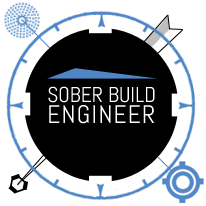AfterBurner
The New York Times Sunday Magazine had an interesting article last week on some new research and a book about burnout. (For those into the Podcast-o-sphere, NPR covered this as well.)
It mostly focuses on data from Wall Street brokers, a cutthroat existence to be sure, but it also has interesting perspectives from social workers and teachers.
A few particularly thought provoking passages stood out to me:
If one of the surest recipes for burnout, as Michael Leiter has said, is the sensation of inefficiency—particularly if we’re still expending energy and seeing little in return—then there may be something about the modern office that conspires to burn us out. In 2005, a psychiatrist at King’s College London did a study in which one group was asked to take an IQ test while doing nothing, and a second group to take an IQ test while distracted by e-mails and ringing telephones. The uninterrupted group did better by an average of ten points, which wasn’t much of a surprise. What was a surprise is that the e-mailers also did worse, by an average of six points, than a group in a similar study that had been tested while stoned.
That’s right. Stoned. Those people were literally burned out, and they did better.
I’ve been trying to pay attention to this more recently, and I’ve noticed that if my day starts with a number of fires, I can easily lose the rest of the day to “pacing on my desktop,” that is switching between Thunderbird, IRC, Bugzilla, and AIM, all in a very tight poll()ing loop, just waiting for one of them to generate an interrupt.
If you get stuck into this mode, it’s easy to waste twenty or thirty minutes in a tight loop, just switching between windows. One recent afternoon, I got into almost this trancelike state, where I was just switching between those applications, so quickly that I wouldn’t have even picked up any state changes had they occured. Fortunately, I noticed it pretty quickly, but before I generally started paying attention to this tendency, it was easy to let this cycle pockmark my afternoon to the point where I didn’t have any significantly contiguous blocks of time to use to accomplish any notably involved (and by implication, forward-thinking) tasks.

I’ve attempted recently to tackle this problem by closing Thunderbird entirely and, stealing a page from sspitzer, changing my nick on IRC to preedMsgMe (which seems to cause some confusion; but I interpret it as “I’m not going to pay attention to any channels, so if you want to talk to me, /msg me privately.)
“The worst case of Wall Street burnout I know is of this guy who wound up driving a cab,” Cass tells me.
A cab?
He shrugs. “There’s a control factor in driving a cab. You go from point A to point B. On Wall Street, you start your day with no idea how it’s going to end.”
My fantasized mode of transportation is different, but the sentiment is the same. Every time people have asked if I want to become a commercial pilot, my answer is the same: “No, that would just suck all the fun out of it.”
But I’ve found myself thinking about it on occasion… like… today for instance:
17:06 <marcia> next week on "As the Update Churns"
17:07 <marcia> preed annouces he is leaving the build team to become a Fighter Pilot
...
17:09 <preed> marcia: I actually thought about that last week
17:10 <preed> maybe not a fighter pilot, though
...
17:17 <Pike> preed: now that you're panic-proof, you want to become a commercial pilot? bah, we shouldn't train you that well
17:17 <preed> I'm trying to figure out which is more stressful
17:18 <preed>this, or flying a hundreds of irritable people around in a tin can.
17:18 <Pike> 300 passengers vs 30 million users
17:18 <Pike> luckily, the 30 million don't die if you [fargle] up
17:19 <preed> Pike: and to think I wanted to be an air traffic controller
One has to wonder whether the developments of a high-speed world haven’t made burnout worse. First, the obvious: With the advent of e-mail, cell phones, laptops, BlackBerrys (or “CrackBerrys”—the argot here seems extremely apt), and other bits of high-speed doodadry, it has become virtually impossible, in senses both literal and metaphorical, to unplug from our jobs. As Schaufeli, the Dutch researcher, notes, one of the strongest predictors of burnout isn’t just work overload but “work-home interference”—a sociologist’s way of saying we’re receiving phone calls from Tokyo during dinner and replying to clients on our BlackBerrys while making our children brush their teeth.
See also.
This type of “interference” seems to be one of the best kept secret neuroses of the project.

I’m as guilty of it as anyone: whenever on vacation, we’re still “available via cell” and responding to email.” Build requests are often made and responded to after 10 pm PST. We all talk about being walking zombies because we were up until 3 am last night (or “didn’t bother sleeping” on that flight back from Europe).
I think part of my own tendency to do this stems from the dedication most of us feel toward The Project ™ and The Community ™ and The Cause ™. That feeling is useful, because it creates an community full of engaged participants who care about their work, the sense of fraternity, and are here by genuine desire.
Never [forcing ourselves to] unplug, has made me wonder about the failure modes of our all-too-human bodies and psyches.
I’m betting they’re not pretty.
